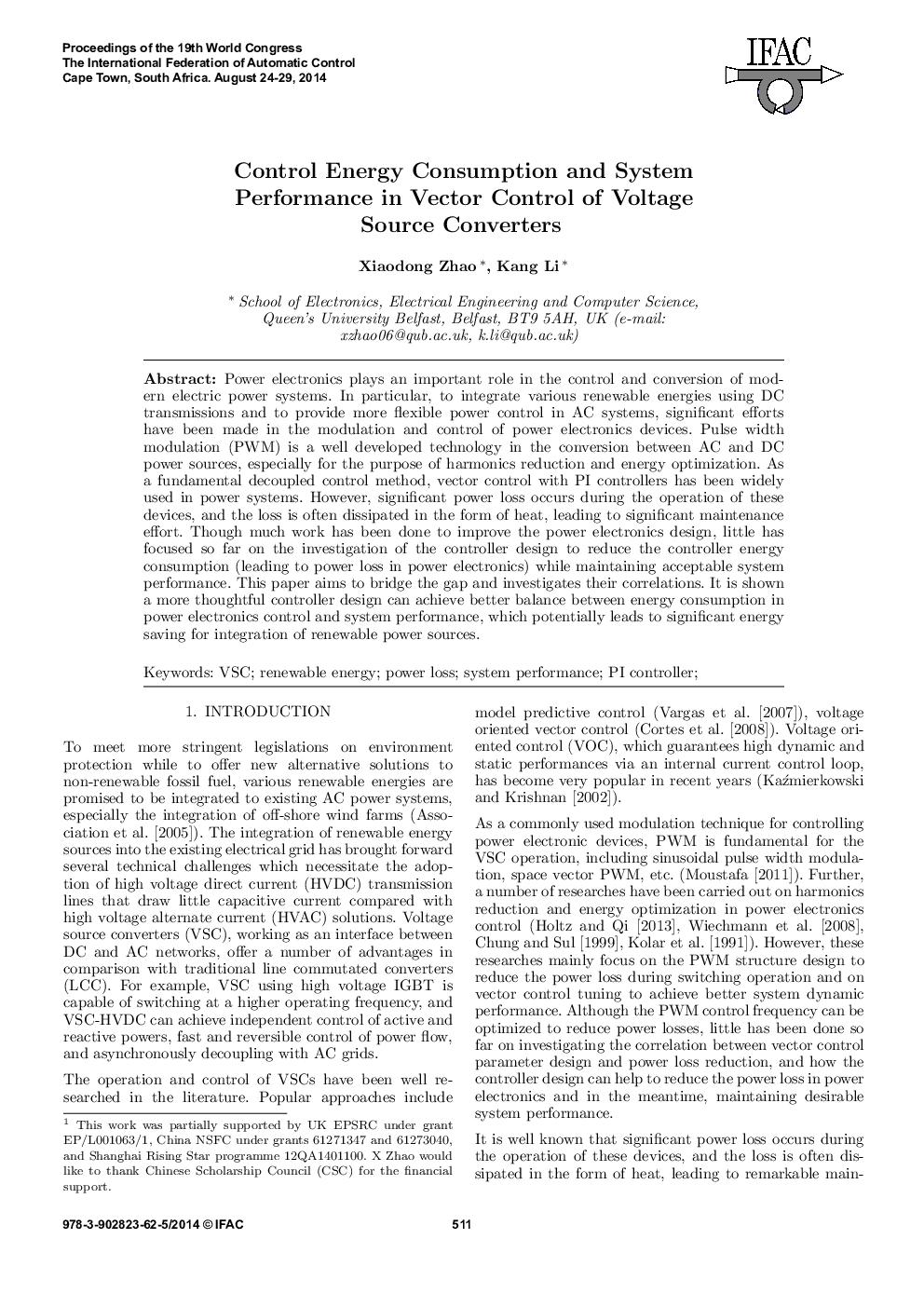| Article ID | Journal | Published Year | Pages | File Type |
|---|---|---|---|---|
| 712203 | IFAC Proceedings Volumes | 2014 | 6 Pages |
Power electronics plays an important role in the control and conversion of modern electric power systems. In particular, to integrate various renewable energies using DC transmissions and to provide more flexible power control in AC systems, significant efforts have been made in the modulation and control of power electronics devices. Pulse width modulation (PWM) is a well developed technology in the conversion between AC and DC power sources, especially for the purpose of harmonics reduction and energy optimization. As a fundamental decoupled control method, vector control with PI controllers has been widely used in power systems. However, significant power loss occurs during the operation of these devices, and the loss is often dissipated in the form of heat, leading to significant maintenance effort. Though much work has been done to improve the power electronics design, little has focused so far on the investigation of the controller design to reduce the controller energy consumption (leading to power loss in power electronics) while maintaining acceptable system performance. This paper aims to bridge the gap and investigates their correlations. It is shown a more thoughtful controller design can achieve better balance between energy consumption in power electronics control and system performance, which potentially leads to significant energy saving for integration of renewable power sources.
